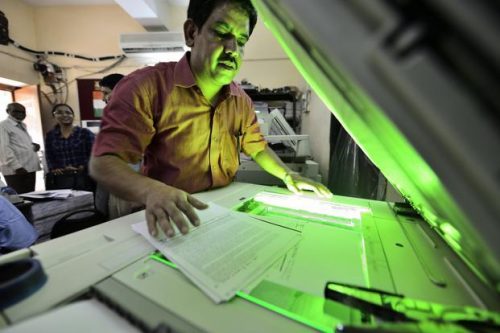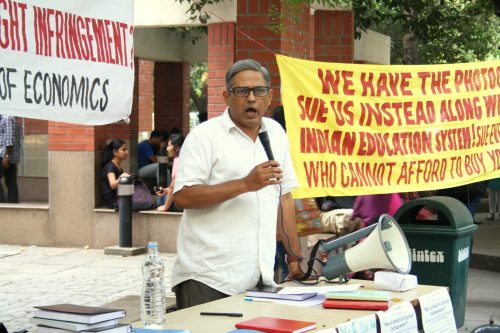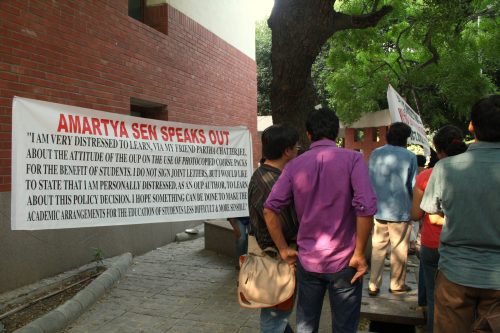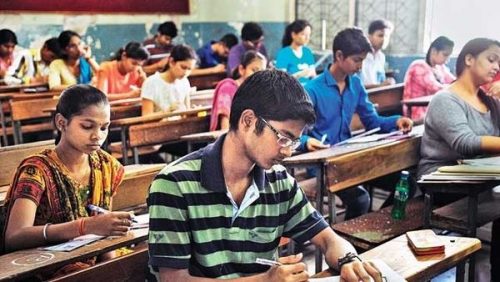TBI Blogs: Delhi HC’s Ruling on DU Photocopy Case Is a Huge Step Forward for Access to Education in India
The Delhi High Court recently rejected the demand of publishers' to ban coursepacks on the grounds of violation of copyright, thus making educational content more accessible and affordable for students.

The Delhi High Court recently rejected the demand of publishers’ to ban coursepacks on the grounds of violation of copyright, thus making educational content more accessible and affordable for students.
The Delhi High Court’s recent ruling, sanctioning the preparation and dissemination of coursepacks as a substitute for expensive textbooks, shows how the law can act as a force for good, not just in theory, but also in practice. The Court’s verdict is likely to play an instrumental role in making educational material more accessible and affordable for students, many of whom are unable to utilize such material at present because of its prohibitive cost.
This verdict breathes meaning and life into the right to education, which was recognized as a constitutionally guaranteed fundamental right by the Indian Parliament in 2002.

Image Source: Livelaw
In August 2012, three of the biggest players in the Indian publishing industry, Oxford University Press, Cambridge University Press, and Taylor and Francis, instituted a lawsuit against Rameshwari Photocopy Services and Delhi University for preparing and disseminating coursepacks, which are miniature versions of textbooks that contain key excerpts from such books. The publishers argued that this amounted to copyright infringement. In October 2012, the Court passed an interim order in the publishers’ favour, restraining Rameshwari from making or selling coursepacks until the final determination of the interim application.
The grant of this temporary relief by the Court practically sounded the death knell for students from poorer communities at Delhi University, as it had the practical impact of depriving them of access to their principal means of absorbing academic content in an affordable fashion, for almost 4 years.
The move of the publishers came in for heavy criticism, with more than 300 authors and academicians urging them to withdraw the lawsuit.
The amount of public attention that this issue received is best evidenced by the fact that Nobel laureate, Amartya Sen also wrote a letter to the publishers, urging them:
“Not to draw on the full force of the law to make these ‘coursepacks’ impossible to generate and use,” because “the cause of education must surely be a very important one.”

Image Source: SpicyIP
At the outset, the Court noted that it is a well settled principle that copyright is merely a statutory right, in contradistinction to a natural right, meaning that no copyright owner can claim to have the unfettered and exclusive right to exploit her creations. This being the case, the Court held, the publishers could not hold the photocopier or the university liable, unless they were able to demonstrate how the latter’s conduct amounted to copyright infringement within the meaning of the Copyright Act, 1957.
The determination of the case turned on what is commonly referred to as the ‘educational exception.’ The exception, forming a part of Section 52 of the Act which delineates a list of activities that do not constitute copyright infringement, shields from liability the reproduction of any work by a teacher or a pupil, among other things, in the course of instruction. To this end, the publishers argued that the phrase ‘in the course of instruction’ would only include the reproduction of copyrighted content for lectures and tutorials, and would not include the photocopying of the entire syllabus in the form of coursepacks.
Rejecting the argument of the publishers, the Court held that the exception does not merely cover the imparting of education in a traditional classroom setting, but must be construed in a capacious manner, including within its fold, all the steps involved in the absorption of knowledge at the college level. Further, since the exception envisages students taking notes from textbooks for educational purposes, the Court held, its intention cannot be frustrated by construing it in such a way as to make it inapplicable to the photocopying of textbooks which is nothing but a modern-day substitute for the arduous task of manual note taking.
On this basis, the Court came to the conclusion that the University or the photocopier could not be held liable for copyright infringement.

Image Source: SpicyIP
While at first glance, it may appear that this case has little relevance for the general public, in light of the fact that it turns on a technical construction of a statutory exception, this could not be farther from the truth. At its root, this judgment recognizes, as the Court eloquently notes, the principle that:
“[c]opyright, specially in literary works, is thus not an inevitable, divine, or natural right that confers on authors the absolute ownership of their creations… Copyright is intended to increase, and not to impede, the harvest of knowledge.”

Image Source: Newsdogtoday
For the cynics who think that intellectual property law is increasingly being used as a tool to promote commercial interests and erect barriers to access to transformative creations for those who would benefit from them the most, this judgment offers an alternative vision.
It offers a vision of a society in which intellectual property law, creatively and purposively interpreted, can bridge gaps as opposed to widening them; can generate opportunities, as opposed to impediments, for intellectual growth and progress; and can, in the final analysis, make our society more, and not less, equal.
The judgment recognizes the principle that education is a public good, which must be made available to all on equal terms. By giving precedence to the social goals that education helps promote, as opposed to the narrow interests of authors and publishers, the Delhi High Court has made it clear that India’s copyright law will be interpreted in a manner consonant with its sui generis needs.
If faithfully implemented, this judgment has the potential of reversing the trend of more than 80 million children dropping out of schools and colleges before completing their education.
This article has been authored by Rahul Bajaj, from the IDIA Disability Access Programme. IDIA Charitable Trust is s a pan-India movement to increase diversity in legal education by making it accessible to underprivileged and marginalized communities. You can help support IDIA in making education and law accessible to all by contributing to IDIA, and spreading the word about IDIA online and offline. For more information, visit idialaw.com/support-idia/.
Featured image source: Livelaw
Like this story? Or have something to share? Write to us: [email protected], or connect with us on Facebook and Twitter (@thebetterindia).
This story made me
- 97
- 121
- 89
- 167
Tell Us More
We bring stories straight from the heart of India, to inspire millions and create a wave of impact. Our positive movement is growing bigger everyday, and we would love for you to join it.
Please contribute whatever you can, every little penny helps our team in bringing you more stories that support dreams and spread hope.



















